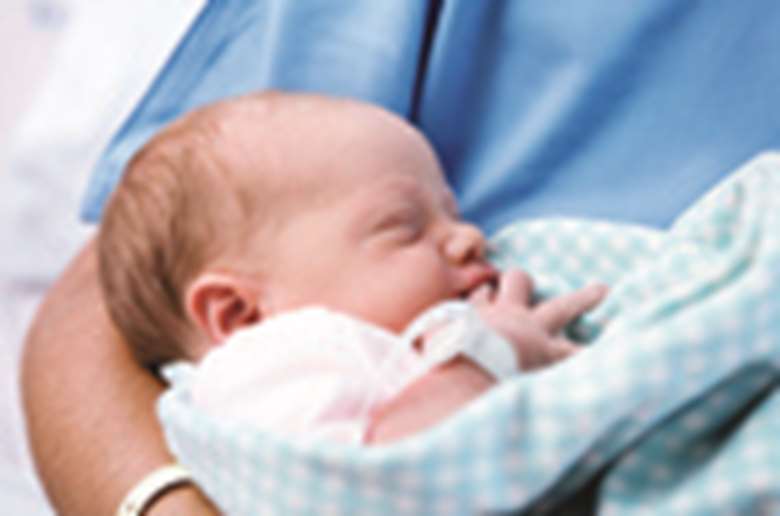Positive Relationships: A Parent's Guide to... Group B Streptococcus
Marianne Sargent
Tuesday, December 15, 2009
More awareness of this is needed

- What is Group B Streptococcus?
Group B Streptococcus (GBS) is a symptomless bacterium that exists in 30 per cent of the adult UK population. Rarely, GBS can cause infection in adults with impaired or suppressed immune systems. More commonly, it can cause serious infection in babies shortly before, during or after birth. GBS is the commonest cause of life-threatening infections in babies in the UK.
- How common are GBS infections in newborn babies?
Approximately one in eight babies born in the UK each year is colonised with the GBS bacterium. However, not all colonised babies will develop a GBS infection. The latest figures show that one in every 1,000 babies develops an infection, about 700 a year. Of these, about 11 per cent die.
- What is a GBS infection?
There are two types of GBS infection. The most common is early-onset, which occurs at birth or within the first six days of life and usually presents as septicemia, although meningitis can also occur. Babies with early-onset GBS infection are often lethargic and irritable, are reluctant to feed, have an abnormally high or low temperature and develop breathing problems very quickly.
About 20 per cent of cases are late-onset. This can occur as early as six days, or as late as three months after birth, although it is very rare for a child over one month old to develop a GBS infection. Late-onset usually presents as meningitis. The signs and symptoms include fever, vomiting and impaired consciousness.
Approximately one half of babies who contract GBS meningitis may suffer brain damage and present with mental or physical disabilities as they grow older. However, most babies who survive early-onset GBS infection will go on to develop without problems.
- How is GBS detected in expectant mothers?
Although pregnant women in the US, Canada and Australia are routinely screened for GBS, testing is not generally offered to expectant mothers in the UK unless it is considered that there is an increased risk of exposing the baby to infection. Risk factors include a previous birth where a baby was infected, and mothers who are known to carry GBS or have had it detected in their urine at some point during the pregnancy.
It is possible to request a test on the NHS. The test most commonly used by the NHS is called a Standard High Vaginal Swab. This test is highly reliable if it produces a positive result. However, it produces a falsely negative result in approximately 50 per cent of cases.
Due to the unreliability of the NHS test, women are generally recommended to arrange a much more reliable private test at a cost of around £30. This test is called the Enriched Culture Medium method and involves taking swabs from both the vagina and rectum between 35 and 37 weeks' gestation. This produces an accurate negative result in 96 per cent of cases and an accurate positive result in 87 per cent of cases.
There are also some clinical factors that increase the risk of GBS infection during labour and delivery. These are pre-term labour (before 37 weeks), if the waters have broken 18 to 24 hours before delivery, or if the mother has a raised temperature of more than 38.7 degsC during labour.
- What can be done to prevent GBS infection?
Intravenous antibiotics can be administered at the onset of labour or for at least four hours before delivery. This reduces the risk of a baby developing early-onset GBS infection to less than one in 6,000. However, the use of antibiotics during labour does involve an element of risk and so should be thoroughly considered and discussed with a medical professional.
- What is being done to raise awareness of the condition?
Although GBS is just as prevalent as Down's Syndrome, most pregnant women are unaware that it exists. The charity Group B Strep Support and Pregnancy and Birth magazine petitioned the Government in January 2008, asking that all pregnant women in the UK be given accurate information about GBS as a routine part of their antenatal care as well as being offered a reliable test for the bacterium. The Prime Minister's response can be found at http://www.number10.gov.uk/Page14453.
- Where can I get further information?
More detailed information about GBS is provided by national charity Group B Strep Support on its website at www.gbss.org.uk.
To request an Enriched Culture Medium GBS screening pack privately, contact The Doctors Laboratory on e-mail: gbs@tdlpathology.com or by telephone on 0207 307 7373.
Marianne Sargent is an early years education lecturer at Leeds Metropolitan University. She previously worked as a foundation stage teacher at maintained schools in Jersey and England.




